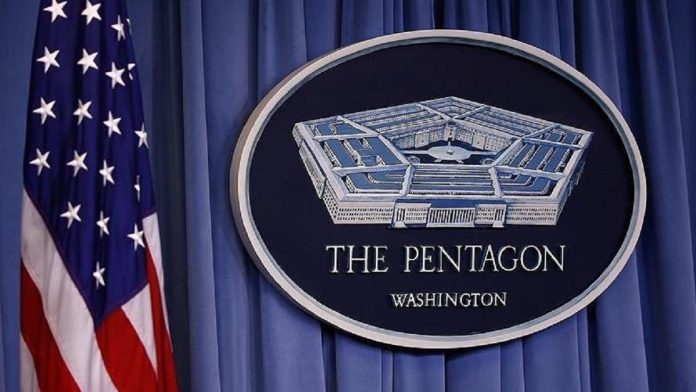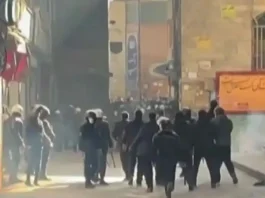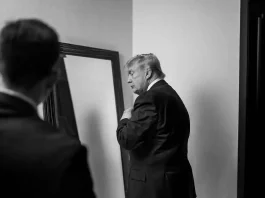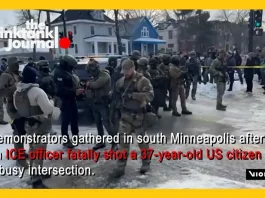In an era where transparency is touted as the bedrock of democracy, a shadowy shift is unfolding inside the halls of power. Imagine this: a reporter uncovers a critical detail about an impending military operation—nothing classified, just unfiltered facts that could shape public debate. Under the latest directives from the nation’s defense apparatus, that story can’t see the light of day without a government stamp of approval. This isn’t dystopian fiction; it’s the stark reality of a 17-page policy memo that’s igniting fury across the free press landscape. As of September 21, 2025, credentialed journalists must now pledge allegiance to a veil of secrecy, signing away their right to publish even unclassified information without official sanction. At its core, this isn’t just about bureaucratic red tape—it’s a calculated clampdown that could redefine how Americans perceive their military might, turning independent watchdogs into leashed informants.
This policy feels less like a security tweak and more like a preemptive strike on truth-tellers. Picture the Pentagon not as a fortress of strategy, but as a gated echo chamber where narratives are curated like press releases. Critics argue it’s the thin end of a wedge that could pry open doors to broader censorship, especially in a administration that’s never shied from media skirmishes. But let’s peel back the layers: What sparked this lockdown? How does it play out on the ground? And, most chillingly, what does it mean for the everyday citizen’s right to know?
What the New Policy Demands from Reporters
Step into the Pentagon’s revamped media playbook, and you’ll find a system designed to filter reality through official funnels. The core mandate? Every scrap of information—be it a casual hallway chat or a declassified briefing note—must pass muster with an “appropriate authorizing official” before hitting print or pixels. This applies universally, even to unclassified intel that’s been floating in the public domain for years. Credentialed journalists, those who’ve earned badges for on-site access, are now compelled to ink a non-disclosure pledge as a ticket to entry. Violate it? Your pass gets yanked, slamming the door on future scoops.
Gone, too, are the days of unfettered prowling through the building’s labyrinthine corridors. Reporters must now stick to scripted paths, badged up and shadowed if needed, transforming what was once a bustling hive of open inquiry into a no-fly zone for nosy notebooks. Enforcement is swift and unforgiving: stray from the rules, and you’re escorted out—no ifs, ands, or appeals. Proponents frame it as a bulwark against chaos, a way to safeguard sensitive ops in an age of instant leaks. Yet, from an operational lens, it’s a logistical nightmare for the press corps, forcing a rethink of everything from deadline chases to source cultivation. One insider likened it to “reporting with one hand tied behind your back,” where the mere whiff of unauthorized info could torpedo a career.
This isn’t isolated tinkering; it’s part of a broader fortress mentality. Recent evictions of entire news teams and escort mandates for swaths of the facility—zones that were fair game under prior regimes—signal a hardening perimeter. Zoom out, and it aligns with a presidential playbook that’s long weaponized words like “fake news” to delegitimize dissent. The result? A press ecosystem starved of spontaneity, where stories emerge not from dogged pursuit but from sanctioned drips.
The Leaks That Ignited the Crackdown
No policy drops from the ether without a backstory, and this one’s prologue reads like a spy thriller gone wrong. Early in the tenure of the current defense chief, a high-stakes blunder rocked the inner circle: a top editor found themselves looped into a private chat thread plotting strikes against Yemen targets. The slip-up, traced to a former national security advisor who was promptly reassigned, exposed raw operational chatter to unintended eyes, leaving officials red-faced and scrambling.
The hits kept coming. Another bombshell dropped when details surfaced about a planned deep-dive briefing for a tech mogul and political heavyweight on contingency blueprints for a showdown with a Pacific powerhouse. That session was scrapped by direct order from the Oval Office, but not before two mid-level staffers were sidelined amid a witch-hunt for the source. These weren’t rogue hacks; they were garden-variety digital fumbles in an era of group texts and hasty shares, yet they fueled a narrative of vulnerability that demanded ironclad fixes.
Viewed through a security prism, these incidents underscore the perils of porous communications in a hyper-connected world. But flip the angle: they’re also a reminder that leaks often serve as democracy’s safety valve, blowing open truths that polished PR can’t touch. The policy’s architects, including the defense secretary who trumpeted it on social media with a curt “the press does not run the Pentagon, the people do,” see it as reclaiming control. Detractors, however, spy a convenient scapegoat for tightening the screws on scrutiny.
The Press Fights Back Against the Gag Order
The backlash has been swift and searing, a chorus of condemnation echoing from press advocacy bastions to editorial desks. At the forefront, leaders in journalistic circles have branded the move an outright assault on constitutional safeguards, zeroing in on the First Amendment’s ironclad shield for a free press. One prominent voice captured the stakes: “If the news about our military must first be approved by the government, then the public is no longer getting independent reporting. It is getting only what officials want them to see. That should alarm every American.”
Professional societies have piled on, decrying it as a textbook case of “prior restraint”—the courts’ red-line taboo against preemptive silencing. Their verdict? This isn’t mere overreach; it’s a slippery slope to outright censorship, masked as national security theater. “Attempts to silence the press under the guise of ‘security’ are part of a disturbing pattern of growing government hostility toward transparency and democratic norms,” rang one blistering statement.
Even editorial heavyweights have waded in, arguing that curbing access doesn’t just hobble reporters—it starves the public of vital intel on the globe’s most formidable fighting force. “The Constitution protects the right to report on the activities of democratically elected and appointed government officials,” one top editor asserted. “Any attempt to control messaging and curb access by the government is counter to the First Amendment and against the public interest.” This groundswell isn’t abstract outrage; it’s a rallying cry, with calls for legal challenges and congressional probes already bubbling up. From this angle, the policy isn’t just policy—it’s a litmus test for how far the fourth estate will bend before it breaks.
Ramifications for Democracy in a Locked-Down World
Peering beyond the Beltway, this directive casts a long shadow over the republic’s foundational pacts. At heart, it’s about the flow of information in a democracy that’s increasingly allergic to unvarnished truths. By mandating pre-approval for even benign disclosures, the Pentagon risks birthing a feedback loop where military narratives are sanitized, successes amplified, and missteps buried. Citizens, in turn, get a funhouse-mirror view of power—polished, partial, and perilously detached from reality.
The timing amplifies the unease. As executive pressures mount through legal salvos and public broadsides against critical coverage, this feels like the institutional arm of a media makeover. Zoom out to global stakes: In conflicts from Yemen to potential flashpoints in Asia, unfettered reporting has historically held the line against overreach, exposing atrocities and checking adventurism. Stifle that, and you court opacity that breeds blunders. Legal eagles predict court battles galore, invoking precedents like the Pentagon Papers saga, where the Supreme Court affirmed that the government can’t play gatekeeper to its own secrets.
Yet, there’s a counter-narrative worth wrestling with: In an age of weaponized info ops and adversarial hacks, does the press’s free rein sometimes tip into recklessness? The policy’s defenders might counter that it’s a calibrated balance, protecting lives without torching liberties. But as one analyst put it, the real peril lies in the precedent—today’s unclassified chit-chat could morph into tomorrow’s veto on whistleblowers. For the average American, it’s a gut-check: Do we trust our watchdogs to roam free, or are we content with a military shrouded in approved mist?
As the dust settles on this seismic shift, one thing rings clear: The battle for open doors at the Pentagon is a microcosm of a larger war for open societies. Will it fortify defenses or fracture trust? The ink on those pledges—and the verdicts from the bench—will tell. Stay vigilant; in the marketplace of ideas, every clamped jawline counts.




